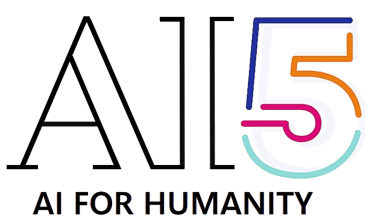Are we hacking life with AI?
Rapid advancements in AI within biology, specifically that AI can now create new proteins in just one second, is exciting. Is it concerning as well?
RESPONSIBLE AIBIOLOGY1
Kevin R.
7/25/20252 min read

Hi
Today I am taking you to one of the biggest scientific revolutions of our time — how AI is transforming the way we understand and design proteins, the building blocks of life itself.
And this isn’t just any scientific milestone — this leap earned Google DeepMind scientists Demis Hassabis and John Jumper the 2024 Nobel Prize in Chemistry. Their work with AlphaFold solved a decades-old challenge — predicting the 3D shape of proteins just from their amino acid sequences.
It’s been called the DNA moment for proteins, because knowing a protein’s structure helps scientists understand how diseases work, and design drugs to treat them.
And they didn’t do this alone — they shared the Nobel with David Baker from the University of Washington, who’s been pushing the boundaries of designing entirely new proteins from scratch.
And here’s the kicker — the speed at which this is happening is mind-blowing.
To really appreciate how fast AI has made this process, let’s take a trip through history.
Let’s start at the very beginning — life’s early ages. Back then, proteins didn’t get designed — they evolved. Nature tinkered with proteins through random mutations and natural selection, and that process? It took millions of years.
Fast forward to the early 1900s, when scientists were just starting to figure out what proteins even were. Designing one on purpose? Completely out of reach.
By the 1950s, scientists solved the first protein structure — myoglobin — using X-ray crystallography. That took more than a decade for just one protein.
Then came the 1970s to 1990s, when the first computational tools showed up. Scientists could try predicting some simple protein structures, but designing one? Still years to decades, and most designs didn’t work.
By the 2000s and 2010s, tools like Rosetta finally let researchers design proteins on computers, but it still took months to years. Most designs failed and had to be tweaked over and over.
And now, in the 2020s, we have ProteinMPNN — an AI tool that can design a brand new protein in about 1 second. One. Second.
That’s at least 100,000 times faster than early computational tools — and compared to evolution’s timeline, it’s almost instant.
Just think about it — we went from millions of years of trial and error, to decades of slow science, to now, where AI can do it in the time it takes to snap your fingers.
This isn’t just a speed boost — it’s opening up whole new worlds in medicine, materials science, and even synthetic biology. We’re talking about designer proteins tailored to fight diseases, clean up pollution, or build entirely new materials.
And it’s all thanks to AI systems trained on massive protein databases — learning the rules of protein folding, then flipping the process around to create new ones.
So what does this mean for the future of biological engineering? Are we essentially becoming the architects of life itself?
You know, that's exactly what keeps me up at night. We've gone from just observing evolution to actively directing it. Think about it - from spending years to solve one protein structure in 1958, to now designing thousands of new proteins in minutes. It's like we've become the gods of creation.
Hmm... but with such power comes huge responsibility, right?
That's the thing - we're moving so fast that we might create things nature never even imagined. And while that's incredibly exciting, it also means we're entering completely uncharted territory. The real question is: are we ready for what comes next?
So the next time you hear about a revolutionary new treatment or a futuristic material — remember, there’s probably an AI behind the scenes, designing the proteins that make it possible.
That’s all for today on AI5 — thanks for tuning in, and we’ll catch you next time for another deep dive into the AI-powered future.
See you soon!
© 2024. All rights reserved.



Delivered from
Switzerland
